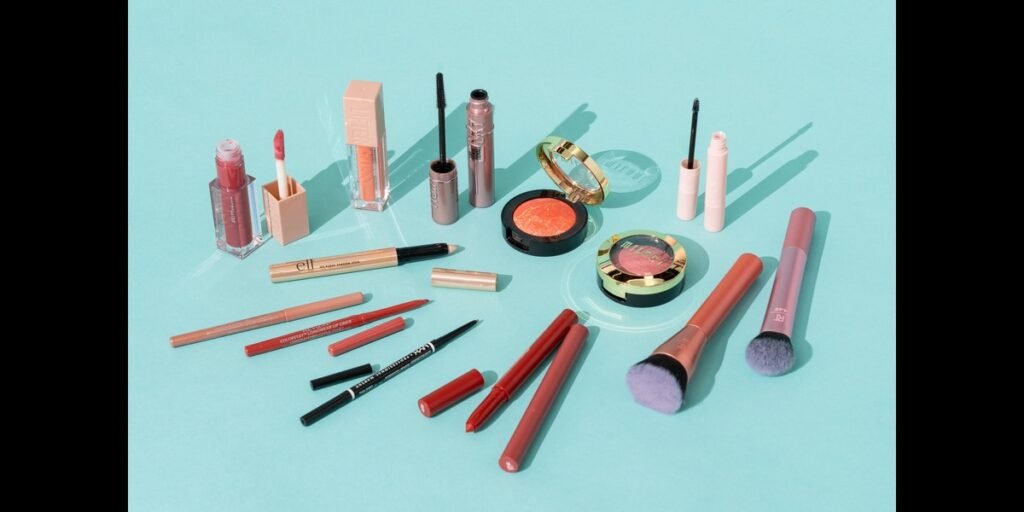The global beauty industry is a fascinating landscape, constantly evolving to meet diverse consumer needs and ethical considerations. In the UAE, a region celebrated for its vibrant culture and strong Islamic values, a particular trend is gaining significant traction: Halal beauty. But is this more than just a passing fad? Could Halal beauty truly be the future of cosmetics in the Emirates and beyond?

What Exactly is Halal Beauty?
For many, the concept of “Halal” is primarily associated with food. However, in Islam, “Halal” (permissible) and “Haram” (forbidden) apply to all aspects of life, including personal care products. Halal beauty essentially means that cosmetic and skincare products are manufactured, processed, and stored in accordance with Islamic law.
This means:
- No Haram Ingredients: Products must be free from ingredients derived from pork, alcohol, certain animal by-products (unless from a Halal-slaughtered animal), and genetically modified organisms (GMOs) that use Haram ingredients.
- Ethical Sourcing & Production: The entire supply chain must adhere to ethical practices, including fair labor and environmentally friendly processes. Animal testing is generally not permitted in Halal certification.
- Purity & Hygiene: Manufacturing facilities must be meticulously clean and free from cross-contamination with Haram substances.
- Transparency: Brands are expected to be transparent about their ingredient lists and sourcing.
Why is Halal Beauty Resonating in the UAE?
The rise of Halal beauty in the UAE is a natural progression driven by several factors:
- Faith-Driven Choices: For many Muslim consumers, using Halal-certified products is an extension of their faith. It provides peace of mind knowing that what they apply to their skin aligns with their religious beliefs.
- Growing Demand for Ethical & Clean Beauty: Beyond religious considerations, there’s a broader global movement towards “clean beauty” – products free from harsh chemicals, sustainably sourced, and cruelty-free. Halal beauty naturally overlaps with many of these principles, appealing to a wider audience seeking ethical and safer alternatives.
- Increased Awareness & Education: As more brands enter the Halal beauty space and certification bodies become more prominent, consumers in the UAE are becoming increasingly educated about what Halal certification truly entails.
- Innovation and Diversity: The market is no longer limited to a few niche brands. Established international players and innovative local start-ups are recognizing the potential and investing in Halal-certified product lines, offering a diverse range of makeup, skincare, and haircare.
Here’s an example of the kind of ethical and pure ingredients you might find in Halal beauty products:

The Economic Power of Halal
The global Halal market is a multi-trillion-dollar industry, and cosmetics represent a significant segment within it. In the UAE, with its high disposable income and a population that values quality and ethical consumption, the economic potential of Halal beauty is immense. This isn’t just about catering to a niche; it’s about addressing a substantial and growing market segment.
Beyond the UAE: A Global Movement
While particularly strong in the UAE and other OIC (Organization of Islamic Cooperation) countries, the appeal of Halal beauty extends far beyond. The principles of ethical sourcing, cruelty-free production, and clean ingredients resonate with conscious consumers worldwide, regardless of their religious background. As such, brands that invest in Halal certification are not just tapping into a regional market but positioning themselves for global growth.
Challenges and the Road Ahead
Despite its promising future, the Halal beauty industry still faces challenges, primarily around standardization of certification and consumer awareness. Education remains key to helping consumers differentiate between truly Halal-certified products and those simply marketed as “natural” or “pure.”
However, with increasing consumer demand and continuous innovation from brands, these challenges are being addressed. We are seeing more robust certification processes and a greater commitment from brands to meet the rigorous standards of Halal compliance.
The Verdict: A Sustainable Future
So, is Halal beauty the future of cosmetics in the UAE? All signs point to a resounding yes. It’s more than just a trend; it’s a movement deeply rooted in faith, ethics, and a growing desire for transparency and purity in the products we use. For brands looking to thrive in the dynamic UAE market, embracing Halal principles and offering certified products isn’t just a smart business move – it’s a commitment to meeting the evolving needs and values of a sophisticated and discerning consumer base.
What are your thoughts on Halal beauty? Have you tried any Halal-certified products? Share your experiences in the comments below!

